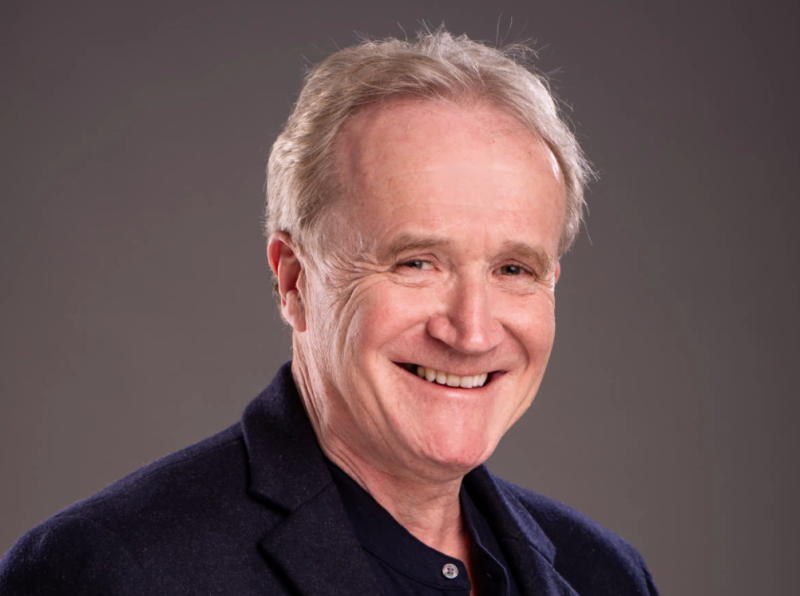IN THE NEWS
Among many areas highlighted by the government’s People at the heart of care White Paper published in December, greater integration between the NHS and country’s social care infrastructure is seen as key to improving the long-term prospects for care in the UK. Last month, the government unveiled specific plans for this integration in a new White Paper titled Joining up care for people, places and populations.
How will it work?
The White Paper aims to set out how it will join up care for staff, organisations and, most importantly, patients and service users. The plans cover four key areas of improvement:
Shared outcomes
Leadership, accountability and finance
Digital and data
The health and care workforce and carers
Three key measures stand out among the many the government wishes to see implemented. The first is that by 2024, each integrated care system (ICS) will have a single health and adult social care record for each citizen by 2024. Currently, basic shared care records do not include both health and care. Second, the introduction by spring next year of a single, identifiable person at place level for delivering outcomes. Third, improving integrated workforce planning at place level.
Tangible difference to the care experience?
Reaction to the White Paper has been mixed. A number of figures welcomed the proposals outlined in the publication. Mark Cubbon, NHS England’s chief delivery officer, stated that joining up health and social care is key to improving efficiency and care provision. Nigel Edwards of the Nuffield Trust was particularly pleased with the proposed approach to merging NHS and council finances had been "dropped for a more flexible approach".
However, Edwards was also keen to point out that integration on its own is not enough to bolster social care and general provision. Kathryn Smith, Chief Executive of the Social Care Institute for Excellence, feels the true test will be whether more integrated care makes a tangible difference to people’s care experience. She also pointed out that ‘better data on its own does not lead to better outcomes’.
Baroness Cavendish’s recent independent report into how we can bolster social care emphasised that while a joint approach between the NHS and social care is needed, especially for the workforce, it must be balanced. She rejected the idea of the NHS taking over social care as one proposed idea, and that in fact the NHS’ role should be limited because it is “still struggling to join up primary and secondary care”.
As David Brindle points out, there are previous examples of successful integration. The care trust experiment in Torbay saw bed occupancy fall by a third and instances of delayed transfer of care became negligible. However, he also argues that it is difficult to see any progress made on integration without first addressing workforce issues such as pay. This is a reiteration of the message from the Independent Care Group from last May, who saw integration efforts akin to “redecorating the house whilst the roof is still leaking.”
INTERVIEW
Mike Padgham, Chairman of the Independent Care Group and Managing Director of Yorkshire-based St. Cecilia’s Care Group, argues that the unsustainability of the current system is clear, but there are a number of issues that need clarifying on the proposed integration approach.

Why is integration a necessary step towards strengthening the adult social care sector?
Turn that question on its head. Is having two separate sectors working? Clearly, not. It is common sense to create a seamless care system, where people are looked after, at the point of need, from the cradle to the grave. Why have a care system in which, for example, you are looked after well in hospital but then unable to get the right care package to be discharged because you are passed on to a different, unfit for purpose, under-funded and fractured sector?
Why have a system in which if you are diagnosed with cancer or heart disease, your care will be looked after and funded by the NHS until you are well or you die, but if you are diagnosed with dementia, another life-limiting disease, you will quite possibly have to sell your own home to pay for your own care. That beggars belief, surely.
Why have a system in which the Government and, via delegated authority, local health trusts look after your medical needs but it is left to your local council to take care of you in your later life or if you have disabilities. Surely it needs to be one or the other – not both.
At the moment, we are working in a fragmented system where NHS care eats up the lion’s share of funding and social care is forgotten. That is unsustainable. Had Nye Bevan known how the long-term care of older and vulnerable people has turned out, he would never have created the NHS as he did in 1948. He would have included the care of older people and those with disabilities from the start.
The Covid-19 pandemic exposed this divided system – with resources and attention focused on the NHS response and social care told at first that they could continue as normal and starved of access to PPE, testing and sensible advice for too long. People with Covid-19 were discharged into care and nursing homes with the obvious, tragic consequence. If, as the pandemic wore on, lines were blurred and NHS and social care services worked more in tandem, then that is something to build upon. But in its first opportunity to ‘level up’ NHS and social care services – the announcement of an extra £12bn of funding for health and social care over the coming three years – it soon became evident that the bulk of this, once again, would go in the first instance, to the NHS, with social care standing with its bowl out for scraps.
The NHS Confederation said that the recent White Paper could arguably be considered a Green Paper, and that there were several issues that needed clarification, do you agree?
I understand their reservations, as there are many issues within the White Paper that need to be discussed and further explored. I agree, for example, with the Confederation’s questioning how the role of the accountable person will work and echo their concerns about making an integrated system work whilst there are dire staffing shortages.
Why have a system in which the Government and, via delegated authority, local health trusts look after your medical needs but it is left to your local council to take care of you in your later life
However, my major concern would be that reform of the social care sector has been delayed and delayed and so maybe a little pragmatism might not be a bad thing. It might not be perfect but let us press on and iron out the wrinkles as we go on, rather than delay.
The White Paper emphasises in particular how it will create a clearly identifiable person accountable for shared outcomes; what impact would this have on the roles of local authorities and those leading the ICS?
I think this is one of those areas which does need clarification as it is hard to see how having a single accountable person in place can work in a system which is so complex and has so many overlapping responsibilities.
As someone working in the private sector, where we are held accountable every day, I wonder just how accountable this individual will actually be? What might the sanctions be if everything does not go to plan? In my experience when something goes wrong in the private sector your financial survival or even your liberty can be at risk. This rarely seems to be the case in the public sector.
The White Paper states that 'collaboration is essential to delivering joined up care', yet Baroness Cavendish's recent report found that the NHS isn't 'human' enough for a greater social care role. Would forcing integration do more harm than good?
We need to be clear that the White Paper stops well short of the type of integration that would, in my view, create a proper ‘cradle to the grave’ care system that we all deserve. As I outlined earlier, the NHS is still the dominant ‘partner’ and gets the lion’s share of funding. It is a huge, sprawling organisation which will take an enormous amount of time to change. At the moment there is too much entrenched, silo thinking around and we have to break down those boundaries and borders to bring NHS and social care together.
We have to end the idea of NHS and social care competing for funding and have them treated equally.
Collaboration isn’t the same as integration, it still implies an element of independence rather than the ‘one for all, all for one attitude’ that we need.
We need to be bold and move more swiftly towards full integration and not settle for a continuation of the bureaucratic and disjointed mess we have at the moment.
Can successful integration happen soon, or does the government need to prioritise fixing the workforce crisis in the sector before successful integration can occur?
I think the two need to go hand in hand and need to be addressed quickly. Reform of social care is long overdue and what has been achieved has been modest and piecemeal. Tinkering with the edges of social care doesn’t move us towards delivering the truly integrated service we desire; it merely postpones it yet further. Integration cannot work without proper reform of social care funding and vice versa. To bring it about successfully, social care funding needs to be improved and placed on an equal footing, in terms of priority, with NHS funding.
OPINION
Councillor David Fothergill, Chair of the Local Government Association’s Community Wellbeing Board and Leader of Somerset Council, writes that the goals of the Government’s White Paper are laudable, but that the resources and funding must be in place to ensure as smooth a transition as possible.

The Government’s Health and Care Integration White Paper sets out a thorough and comprehensive plan for the future of services, but changes can only be delivered with adequate resources and the shared commitment of the NHS and local government.
The LGA supports the commitment and vision of the White Paper that place continues to have a strong role in joining up planning, resourcing and delivery of care and support to improve outcomes for individuals and wider population health outcomes. However, the commitment to joining up NHS and adult social care workforce planning at place and system level, and the commitment for sharing data with partners and users of services comes with no additional resources.
Across the country, local government and the NHS have long-been working to join up care and support, so it is great to see that the Government’s proposals for health and care integration is a reiteration that they are committed to escalating the scale and pace integration.
The clear focus on integration at place is a welcome reminder that though integrated care systems (ICSs) will make connections and drive this agenda at system level, it is at place level that most care and support will continue to be planned and delivered.
We are glad to see a focus on improving population health outcomes and health inequalities, as well as person-centre care and support. Place-based leadership, planning and delivery of care is going to be crucial in delivering for our communities, and most current systems of care are managed within local authority boundaries. In areas with complex ICS and place footprints, this will be a challenge, but we are keen to work with local government and NHS leaders to make this work for our citizens.
Across the country, local government and the NHS have long-been working to join up care and support
To achieve a successful delivery of place-based care, health and care needs adequate resources directed to where they are most needed and evidence-based planning to use them where they will achieve the best outcomes. This needs strong local information based on needs and health disparities, a skilled and high-quality workforce working in place based multidisciplinary teams and the freedom and flexibility for local NHS and council leaders to identify their own shared priorities and action plans. Local authority and NHS leaders also need to reach agreement on arrangements for place-based accountability.
It is key for the success of this plan that each area of integration has the support, funding and resource necessary to make this transition as smooth as possible. The changes must not come at any sacrifice in quality of care to patients or those who draw on social care. We ask the Government to work closely with all aspects of health and social care and deliver the required means to make this transition a success.
We will continue to work with Government to identify the true costs and seek additional funding to ensure that place-based integration delivers better outcomes, better services and better use of resources. Adult social care is already in a fragile position, with councils struggling to balance budgets and services severely impacted by rising costs and recruitment issues. These proposals should come with no further financial or administrative burdens to the current system.



